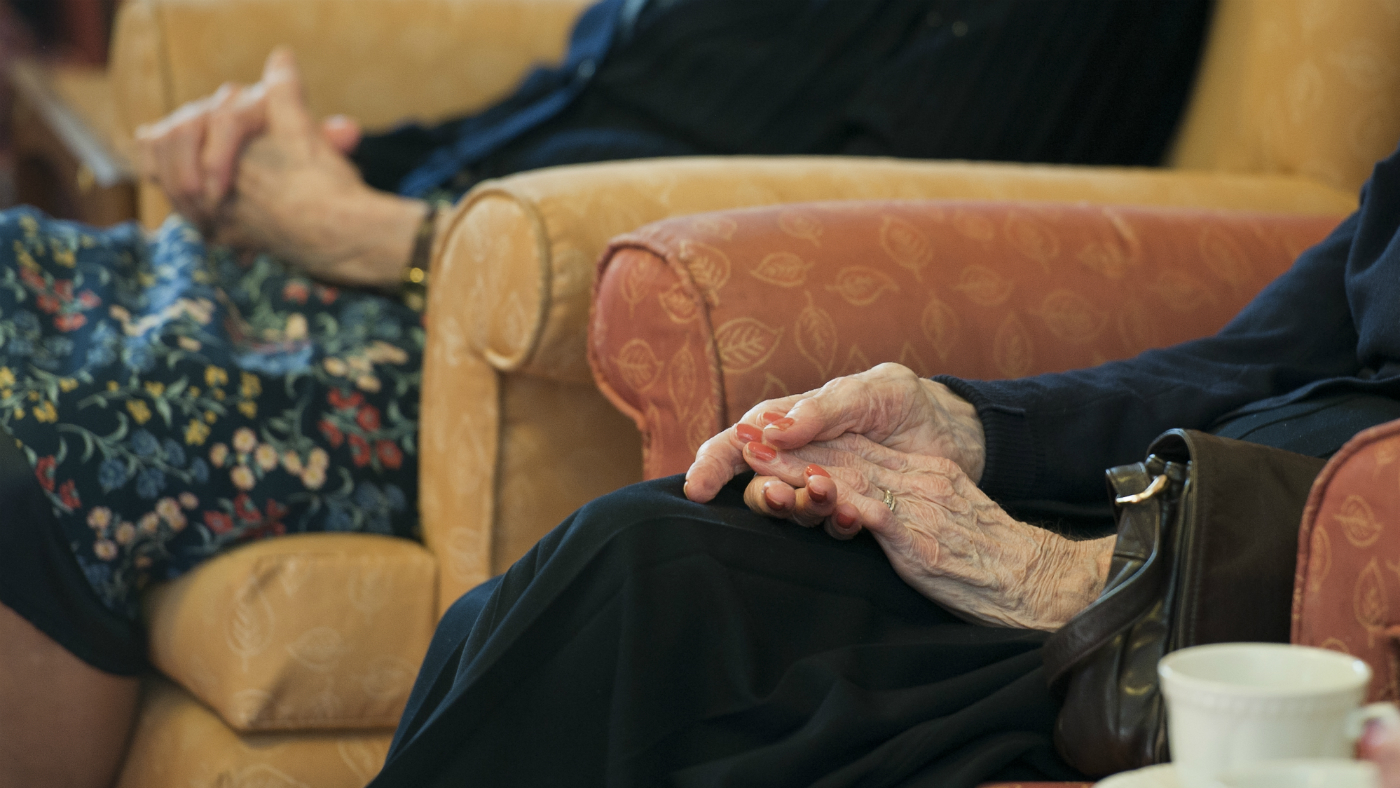Why British dementia patients are being sent to Thailand
New research reveals desperate families seeking affordable care overseas for relatives with the disease

A free daily email with the biggest news stories of the day – and the best features from TheWeek.com
You are now subscribed
Your newsletter sign-up was successful
A growing number of elderly sufferers of dementia are being sent to Thailand by families struggling to meet the cost of care in the UK, according to new research.
The Guardian reports that researchers visiting private care homes for dementia patients in Chiang Mai, a city in northern Thailand, have found “eight homes where guests from the UK are living thousands of miles away from their families”.
The majority of these patients have been sent to the Southeast Asian nation because “suitable care in their home country was impossible to find or afford”, says the newspaper.
The Week
Escape your echo chamber. Get the facts behind the news, plus analysis from multiple perspectives.

Sign up for The Week's Free Newsletters
From our morning news briefing to a weekly Good News Newsletter, get the best of The Week delivered directly to your inbox.
From our morning news briefing to a weekly Good News Newsletter, get the best of The Week delivered directly to your inbox.
Recent figures from the Alzheimer’s Society suggest that there are currently around 850,000 people with dementia in the UK - a number that is projected to rise to 1.6 million by 2040.
An estimated 225,000 will develop dementia this year alone, equivalent to around one every three minutes.
Local authority residential care for dementia patients in the UK can cost up to £700 a week, while private care comes in at around £1,000.
“There are no prescribed staff-to-guest ratios in the UK but, with annual staff turnover exceeding 30% and 122,000 job vacancies, levels in state and private facilities tend to be around 1:6,” The Guardian reports.
A free daily email with the biggest news stories of the day – and the best features from TheWeek.com
“In Thailand, in contrast, 1:1 around-the-clock residential care with fully-qualified staff – in award-winning facilities that look like four-star hotels – costs around £750 a week.”
–––––––––––––––––––––––––––––––For a weekly round-up of the best articles and columns from the UK and abroad, try The Week magazine. Start your trial subscription today–––––––––––––––––––––––––––––––
The paper says that a number of the facilities are British-run, while others are “Thai-run but with substantial investment from British citizens, and some are Swiss-run”. All reportedly “have the backing and support of the Thai government”.
Dr Caleb Johnston, a lecturer in human geography at Newcastle University, said: “Thailand already has a long history of medical tourism and it’s now setting itself up as an international hub for dementia care.
“The government and private investors are very active in cultivating this as part of their economic development.”
Although there are no official figures for the number of people being sent from the UK to Thailand to receive care, Johnston believes it is “likely to be an option that more and more people consider”.
That view is shared by Paul Edwards, director of clinical services at Dementia UK. “I can well understand people choosing this option, given the state of anxiety about care in the UK,” he said.
“It’s an emerging market that I can see becoming more popular because our failing and ailing system – which no politician is even trying to find a solution for – causes fear for those whose loved ones have to use it.”
-
 How the FCC’s ‘equal time’ rule works
How the FCC’s ‘equal time’ rule worksIn the Spotlight The law is at the heart of the Colbert-CBS conflict
-
 What is the endgame in the DHS shutdown?
What is the endgame in the DHS shutdown?Today’s Big Question Democrats want to rein in ICE’s immigration crackdown
-
 ‘Poor time management isn’t just an inconvenience’
‘Poor time management isn’t just an inconvenience’Instant Opinion Opinion, comment and editorials of the day
-
 Epstein files topple law CEO, roil UK government
Epstein files topple law CEO, roil UK governmentSpeed Read Peter Mandelson, Britain’s former ambassador to the US, is caught up in the scandal
-
 Iran and US prepare to meet after skirmishes
Iran and US prepare to meet after skirmishesSpeed Read The incident comes amid heightened tensions in the Middle East
-
 Israel retrieves final hostage’s body from Gaza
Israel retrieves final hostage’s body from GazaSpeed Read The 24-year-old police officer was killed during the initial Hamas attack
-
 China’s Xi targets top general in growing purge
China’s Xi targets top general in growing purgeSpeed Read Zhang Youxia is being investigated over ‘grave violations’ of the law
-
 Panama and Canada are negotiating over a crucial copper mine
Panama and Canada are negotiating over a crucial copper mineIn the Spotlight Panama is set to make a final decision on the mine this summer
-
 Why Greenland’s natural resources are nearly impossible to mine
Why Greenland’s natural resources are nearly impossible to mineThe Explainer The country’s natural landscape makes the task extremely difficult
-
 Iran cuts internet as protests escalate
Iran cuts internet as protests escalateSpeed Reada Government buildings across the country have been set on fire
-
 US nabs ‘shadow’ tanker claimed by Russia
US nabs ‘shadow’ tanker claimed by RussiaSpeed Read The ship was one of two vessels seized by the US military